Face-to-Face with First-Gen
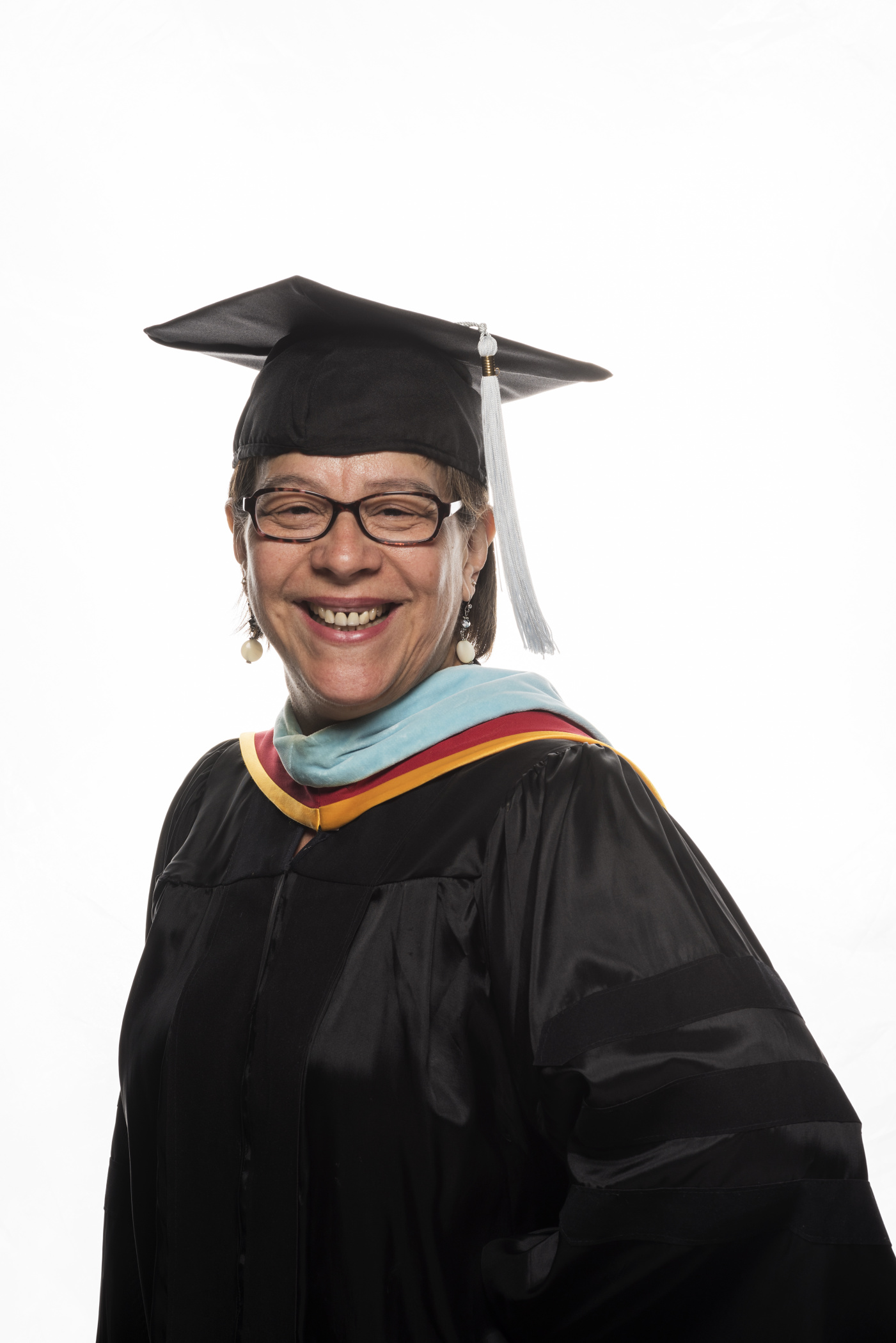
With more than 50 percent of our students the first generation in their families to complete a four-year degree, this fall the Office of Diversity and Inclusion is launching an awareness campaign to support the first-generation community here at Chico State. Faculty, staff, and students who are first-generation themselves participated in the campaign, showing their diversity, solidarity, and support of students who are striving toward the same goal. Here, nine participants share their stories about what it means to be first-gen:
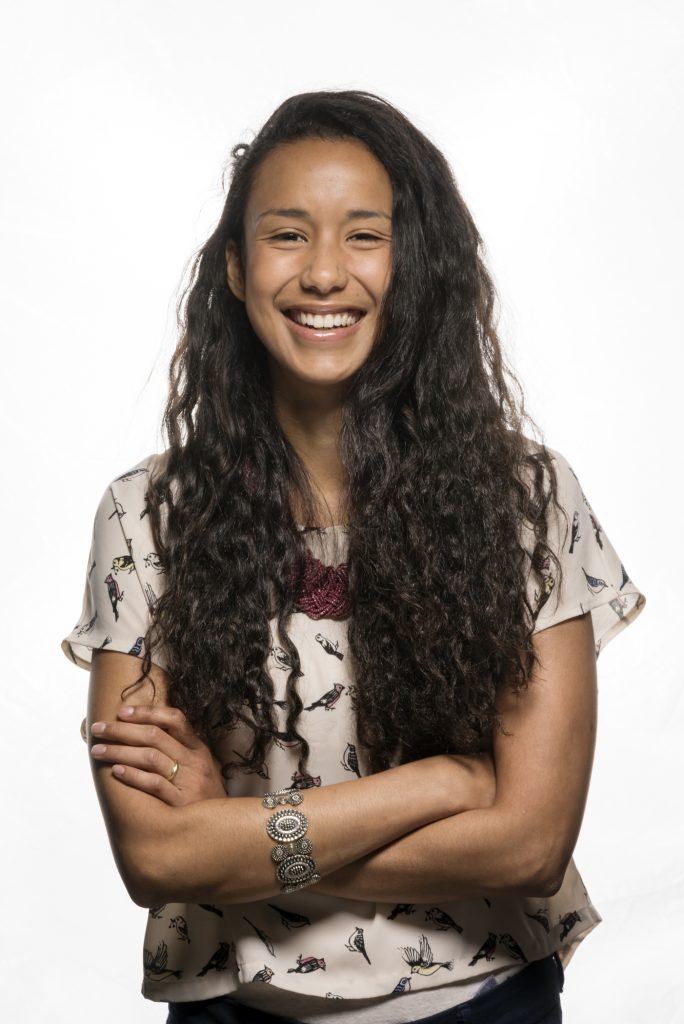
Name: Cecilia Lapolli
Hometown: St. Helena
Role on campus: Study Abroad Advisor, Office of International Education
Years on campus: 1 year, 3 months
Education: BA, Latin American Studies. I am hoping to start a master’s degree in spring.
Why did you choose Chico? I love the community and the campus environment. Most of all, I love the nature aspect of this city, as I spend most of my time getting lost in Upper Bidwell Park. Hiking and swimming is my happy place.
What first sparked your interest in a college education? I’ve always been inspired to go to college because of the community I grew up in—it was normal to expect to continue on to get a higher education. I consider myself very fortunate to have been raised with encouragement and support from my family and friends to continue on to college, even if a large part of my family does not have a college education.
What were some barriers that prevented others in your family from completing a four-year degree? Some of the biggest obstacles include a language barrier (native Spanish speakers) and immigration to the United States later in life.
Who can you point to as a mentor or inspiration in your pursuit of a four-year degree and why? My biggest mentor was my mom. She moved to the states from El Salvador when she was only 14 years old and worked very hard to learn English fluently. She continuously reminded me that having a college education is crucial. She started school two years after I did—now she has a nursing degree and is one of the most successful bilingual nurses in the Napa Valley.
What does being first-gen mean to you? It means that despite having many barriers (financially, culturally, emotionally), anything is possible. I paid for my own education and even got to study abroad. If I can do it, anyone can. You just have to be motivated, resourceful, and determined.
What challenges do you struggle with or have you overcome as a result of being first gen? While most of my friends in the dorms had their parents guiding them through the whole process, I really had to figure things out on my own. I didn’t know how to manage my own financial aid, I wasn’t sure how difficult classes were going to be, I had no idea how to ask for guidance or seek out resources offered at Chico State. Having gone through this, I am stronger and have so much more confidence when life throws me curveballs.
What is your wildest ambition? Complete fluency in five different languages! I currently speak three fluently: Spanish, Portuguese, English (of course), and am working on French.
What message do you want to send other first-gen students? Don’t be afraid to ask for help! There are so many resources on campus I wish I had known about when I first started college; there are a plethora of professionals who are happy to help you through navigating life at Chico State. Don’t give up when things get difficult.
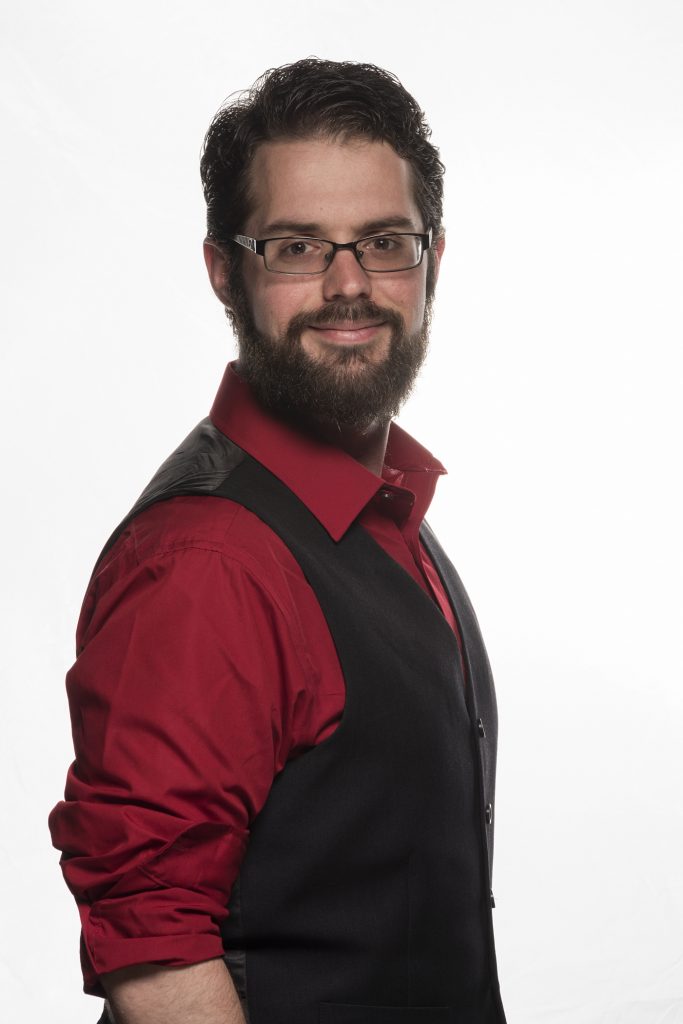
Name: Michael Doris
Hometown: San Diego
Role on Campus: Student, double major in physics and electrical engineering.
Years on campus: 1 year, 6 months
Will you continue your education beyond a four-year degree? I was on the fence for a long time. I also felt like I wasn’t good enough or smart enough for graduate school. However, thanks to the many people I’ve met at Butte College and Chico State, I now see that I can do this, and that everyone deserves to be a part of higher education. I decided to pursue a Master of Science degree in electrical engineering and a PhD in physics.
Why did you choose Chico? As a first-generation student from a low-income family, I had no support system. Chico State was close to where I was already living and working, and the tuition was low enough I could feasibly afford it with employment and financial aid. Also, the faculty and staff were incredibly friendly and demonstrated a passion I rarely see. You’re not just a student or ID number with a grade; you’re a person they want to get to know and help, to ensure that you can achieve whatever you aspire to.
What first sparked your interest in a college education? I didn’t want to let others define who I was or what my future would be. I wanted to make a difference in the world, and to do that I needed an education.
What were some barriers that prevented others in your family from completing a four-year degree? Coming from a low-income, single-parent household has placed a large burden on the ability of my siblings to pursue college. My father was a military man, and he dropped out of school to enroll into the US Army. Although he went back later to get his high school diploma, he never went to college due to his commitment to the military and his family.
Who can you point to as a mentor or inspiration in your pursuit of a four-year degree and why? Most of my family had given up on me. To grow up feeling like almost everyone around you has given up on you, or told that you’re a failure and worthless, is crushing. My father and a family friend were the only ones who never truly gave up on me. They tried to plant seeds of thought that I could do something if I tried. When I went to Butte College and was accepted into MESA (Mathematics, Engineering, Science Achievement) program, it was Nena Anguiano who pushed me to say yes to every opportunity and showed me that I could achieve so much if I really tried. She would always tell me a small choice or change I make, like saying yes to that opportunity I’m afraid to take, can lead to a small shift and eventually expand to engulf changes and experiences I would never have dreamed of having. Then, (at Chico State), the discovery of so many people, with their own unique stories, who share this common thread of hardship and feeling of not belonging, showed me how important it was to not only succeed for myself, but to help others succeed as well. Those individuals who are the first in their family to succeed set an example for the rest of us—they give us hope that we can do this, too.
What does being first-gen mean to you? Hope and the opportunity to show others that you are worth something and can achieve anything you set yourself to.
What challenges do you struggle with or have you overcome as a result of being first gen? I struggle with the occasional feeling of not being good enough, but I think that is a normal thing for many first-generation students. I pretty much always struggle to balance my finances and time. So, like many students I know, I work outside of class. At one point I was working two jobs at upwards of 50-60 hours a week and doing a full-time load of courses. Programs like MESA, TRIO, and CSC2 helped be that guiding light through the fog and confusion of college.
What is your wildest ambition? I would love it if I could work in some fancy national lab and help produce groundbreaking discoveries or research. I would like to be able to say that I helped the world in some small amount.
What message do you want to send other first-gen students? Please don’t give up, and stay hopeful even when things seem their darkest. Seek out others like you, talk to your professors, or take part in the many support programs available here at Chico State. It can be incredibly difficult at times, and you’ll feel like you don’t belong or that you can’t do it. But you can’t give up and you can do it. When you finally walk that stage with diploma in hand you’ll be so much stronger after the hardships and difficulties you’ve overcome. You’ll be an inspiration to others to follow in your footsteps. Show the world that you are worth something and don’t let anyone tell you otherwise.
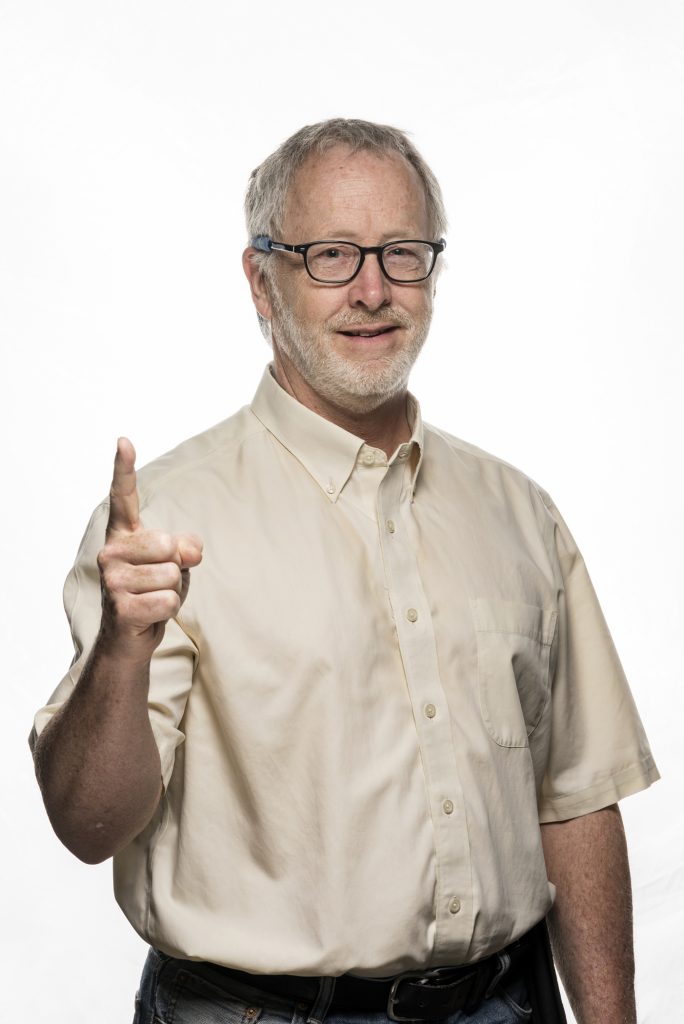
Name: Dave Brown
Hometown: Riverside
Role on Campus: Professor, Geological and Environmental Sciences
Years on campus: 20
Education: BA in independent Studies with a concentration in environmental studies, MS in hydrology/hydrogeology, PhD in soil science
Why did you choose Chico? As a transfer student coming out of Lassen Community College many years ago, Chico State was just where everyone moved on to. It wasn’t really a conscious choice. I chose the faculty position here because there was a job offer but also because the town seemed to be a great community in which we could raise our two young sons.
What first sparked your interest in a college education? My family just assumed I would go to college and I didn’t question that. I didn’t become intentional about going to college until graduate school.
What were some barriers that prevented others in your family from completing a four-year degree? Previous generations of my family were in the lower-middle class from farming and trades backgrounds, and they went to work at an early age. I don’t think attending college was in their mindset. I have no siblings.
Who can you point to as a mentor or inspiration in your pursuit of a four-year degree and why? I can’t recall ever having an advisor until the last year or so in my undergraduate experience. I ended up having to write my own major since environmental studies didn’t yet exist (this was the 1970s). In the Honors College at the University of Oregon, I was blessed to have had a true faculty mentor that guided my growth as a scholar and inspired my interest in academia and learning.
What does being first-gen mean to you? Being a first-gen student meant that I was alone in my family. Beyond a bachelor’s degree, my family couldn’t begin to understand my interest in graduate studies. They loved me but couldn’t guide me in any way. They really wanted me out of school and into a “real” career.
What challenges do you struggle with or have you overcome as a result of being first gen? I am a recovering sufferer of “impostor syndrome.” A very meaningful book I once read was titled, “If I’m So Successful, Why Do I Feel Like a Fake?” It captured me in a classic manner. In my doctoral program at UC Berkeley, I felt like the dumbest kid in the classroom. However, I did graduate and have been gradually improving my self-image.
What is your wildest ambition? I hope I never lose my overall optimism and belief that goodness will overcome.
What message do you want to send other first-gen students? First-gen students need to know that they aren’t alone in the world and especially on this campus. They can find greater happiness and success connecting with and being supported by others.
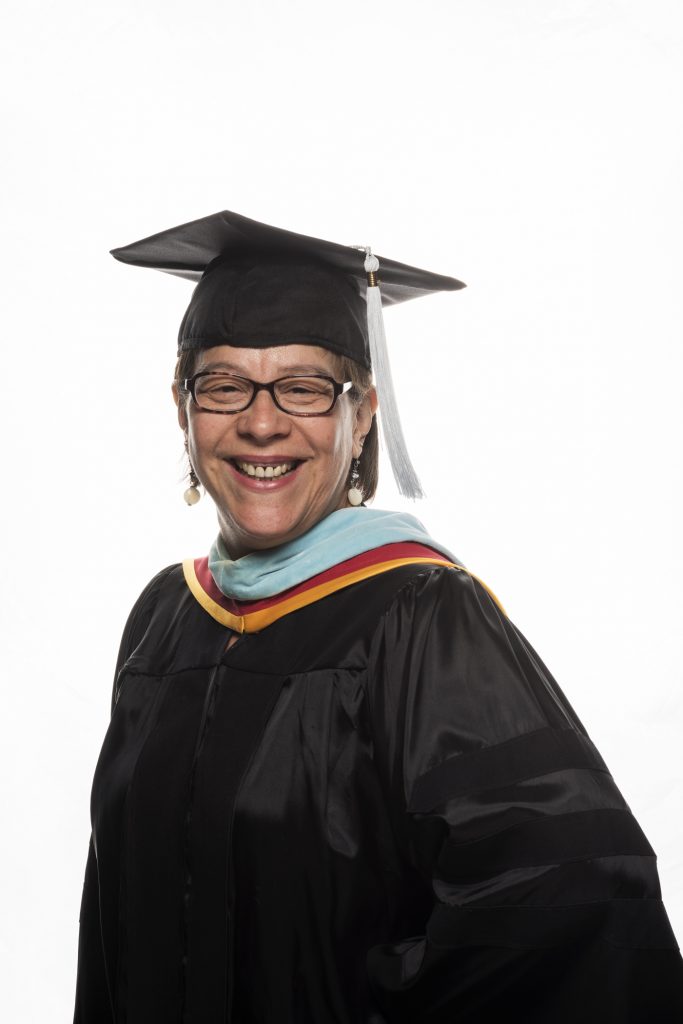
Name: Chela Mendoza Patterson
Hometown: Oxnard
Role on Campus: Director, Early Outreach and Support Programs
Years on campus: 34
Did you or do you have plans to continue your education beyond a four-year degree? No. My initial plan was just to get a BA. I didn’t have any idea about graduate degrees until about my third year. Luckily, I had a mentor who explained to me I would need to get an MA if I wanted to work in higher education.
Why did you choose Chico? My husband and I were at the University of Maryland, College Park, pursuing graduate’s degrees. Originally from California, we were trying to get a job back in our home state. Chico State offered him a position at the Counseling Center and about two months later, I was offered a position with the Associated Students.
What first sparked your interest in a college education? I always loved to read and loved school. Although no one in my neighborhood had ever gone to college, it was a dream I had since I was a little girl.
What were some barriers that prevented others in your family from completing a four-year degree? My siblings never seemed to thrive in school like I did. They were turned off to pursuing an education beyond high school.
Who can you point to as a mentor or inspiration in your pursuit of a four-year degree and why? My parents were big proponents of education even though they didn’t go to college. I had one uncle who eventually became an attorney and he was my role model.
What does being first-gen mean to you? Being first-gen means that I achieved a higher education despite not having any idea what that would entail. I am terribly proud of that accomplishment.
What challenges do you struggle with or have you overcome as a result of being first gen? One of the biggest challenges I had as a student was the terrible homesickness I suffered. I think I cried for the first two years every time I had to leave home to come back to school—and I loved school! My parents didn’t really understand what I was studying or what I eventually hoped to do in higher education. As I pursued graduate school, I had to start all over again in terms of understanding how that process worked.
What is your wildest ambition? My wildest ambition was to eventually earn my doctorate in education. I did that in 1998 from University of Southern California.
What message do you want to send other first-gen students? It’s OK to ask for help. Those of us who have already been through this process—not one of us ever achieved our goals by doing things on our own.
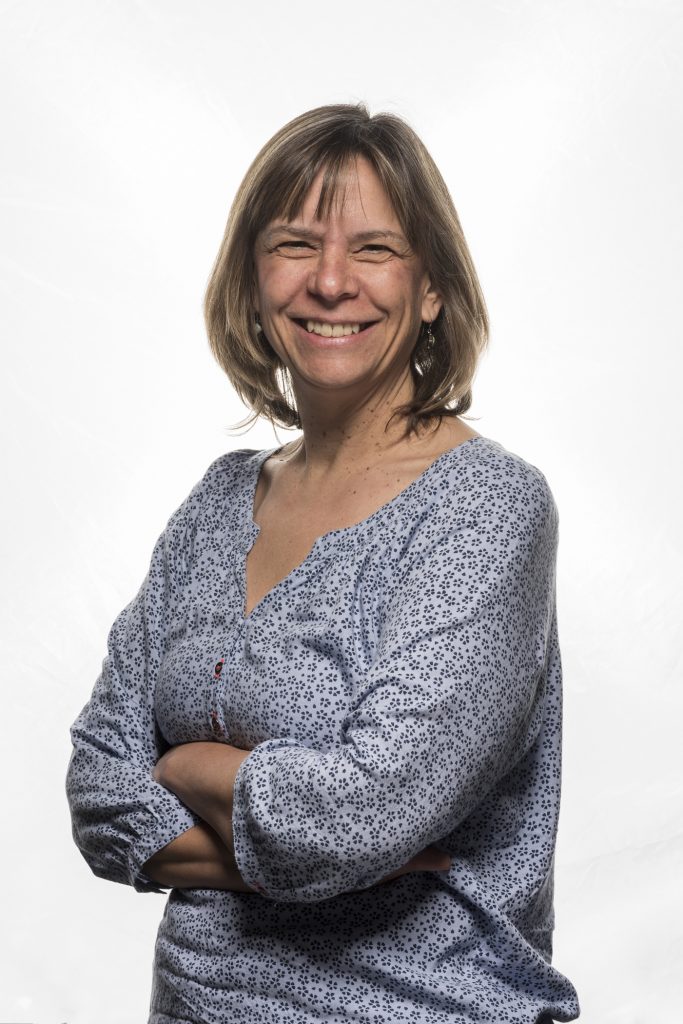
Name: Ann Schulte
Hometown: Yankton, South Dakota
Role on Campus: Faculty in the School of Education
Years on campus: 17
Did you or do you have plans to continue your education beyond a four-year degree? I did not plan to continue after I graduated with a BA in Education. I never even thought about getting a PhD until right before I applied for it.
Why did you choose Chico? I loved the people and the place, and when I applied for a job as a professor, I wanted to move near my sisters who had lived in California for many years.
What first sparked your interest in a college education? I was not a very academic student. In high school, I took all the home economics classes I could and only as much math as I had to. Not a single AP course. But I joined debate as a freshman and my debate coach inspired me to keep at it, even though I wasn’t particularly good. I learned that it was about developing the skill, not necessarily winning.
What were some barriers that prevented others in your family from completing a four-year degree? We lived in a rural area and I think my parents didn’t need a higher education when they were young. They were smart, but not particularly intellectual. Independence was valued, but college wasn’t a given.
Who can you point to as a mentor or inspiration in your pursuit of a four-year degree and why? Definitely my debate coach and my fellow debaters. They all went on to be doctors and lawyers, and I went into teaching so I could coach debate.
What does being first-gen mean to you? It means that I didn’t grow up talking about current events or discussing academic subjects. I had relatively low expectations for my educational advancement.
What challenges do you struggle with or have you overcome as a result of being first gen? I still feel like I’m not that “book smart” even though I have a PhD. I have never taken calculus or art history. I don’t ever get references to Voltaire.
What is your wildest ambition? To be a part of preserving the true purpose of public education for the common good.
What message do you want to send other first-gen students? Persistence is key.
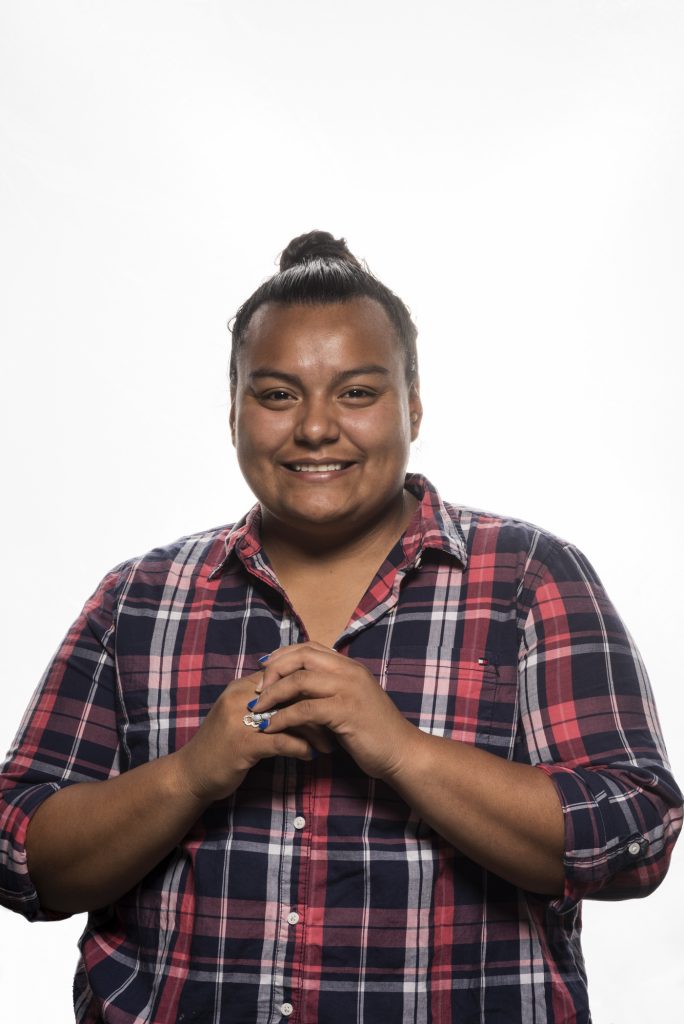
Name: Ana Cany Mejia Cortes
Hometown: Santa María, California
Major: I graduated with bachelor’s degrees in Spanish and Latin America Studies in 2017.
Years on campus: I transferred from a community college in my hometown called Allan Hancock College in 2015 and graduated this May.
Did you or do you have plans to continue your education beyond a four-year degree? I am currently attending University of Nevada, Reno, to get my master’s degree in Spanish.
Why did you choose Chico? I went to Chico because it was a small university and I thought it was going to be better and easier to meet my professors and be able to have a connection with them. I also went to Chico because a Spanish teacher I had in high school would always talk about Chico and how great her experience was, so I wanted to have the same experience.
What first sparked your interest in a college education? I just knew that I wanted to do more than my parents did. I wanted to let my parent know that all the sacrifices they made to come to the United States were not taken for granted and that I was going to take every opportunity to make them proud.
What were some barriers that prevented others in your family from completing a four-year degree? Because my stepfather could not work due to medical sickness, my other brother had to work to support the family and he was not able to go to school. For my other brother, he did attend high school for a year or so but had to drop off because my older brother could not keep up with all the bills for the house.
Who can you point to as a mentor or inspiration in your pursuit of a four-year degree and why? My biggest inspiration was my stepfather. Ever since I can remember, he was always sick and in the hospital but he never gave up. He fought until the end and he always told me that I had to go to school, to be someone in life and to be able to live my life to the fullest and to reach my potential. As of today, my mentor is Tracey Cearley, one of the many nurses my stepfather had. He has helped me in the process of applying to college, and has guided me and sometimes convinced me that I can do whatever I set my mind to. All I have to do is put my heart into it and work hard, and I will get there.
What does being first-gen mean to you? For me, first-generation means proving to my parents and siblings that it is possible to get an education and be someone in life. It also means that all the sacrifices that my family have done are worth it, and it also means that I am opening the door for future generations to show them that if I did it, they can do it as well. It also means a better future, not just for me but for my family. Lastly, it means hard work and dedication because one has to open her own way.
What challenges do you struggle with or have you overcome as a result of being first gen? The biggest struggles is to believe that I do belong here and that I have reached the goals I have reached because I deserve them and because I have earned them and have worked hard for them. Another struggle is being able to leave your family and engage in a new experience all on your own.
What is your wildest ambition? To publish a book in Spanish. And to be able to one day buy my mother and my two brothers each a house as a way to repay them for all the sacrifices they made for me.
What message do you want to send other first-gen students? That no matter how difficult the situation looks, if you put your heart and dedication into something, you can overcome anything.
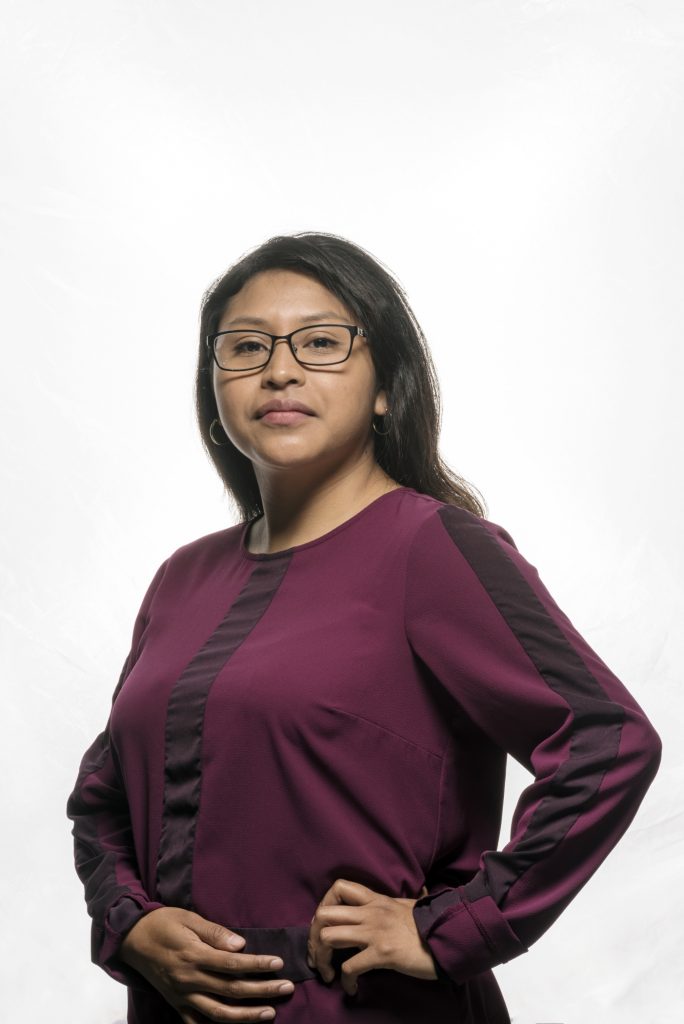
Name: Amalia Rodas
Hometown: Escondido, California
Role on Campus: Graduate student pursuing a Master of Public Administration degree
Years on campus: 7
Did you have plans to continue your education beyond a four-year degree? I did not have plans to continue on to graduate school. I came in as a pre-nursing major without even thinking about how much I dislike taking blood and vaccines. It took me five years to get through my undergrad degree, and that was a huge accomplishment for me since I almost dropped out when I first came to Chico. It took me a while to get used to the different place and people, and to learn how much I love and value education.
Why did you choose Chico? I got accepted to four CSUs—San Marcos, East Bay, San Bernardino, and Chico. My favorite high school teacher, Lance Keller, came to Chico State, so that was truly a main influence in my decision-making. I remember thinking in high school that I wouldn’t come to college because I didn’t know about financial aid. Chico ended up offering me the most money, and that finalized my decision.
What first sparked your interest in a college education? My parents have always told me that we came to this country so that my siblings and I can have more opportunities than they did. My father loves learning. He used to try to make time to read our high school textbooks sometimes. I think that seeing his passion for education but not having the time nor money to attend a university himself continuously pushed me to do what I could. In a way, it was a feeling that I couldn’t let my parents down because they made so many sacrifices when we were younger. The least I could do was fulfill one of their biggest dreams—I owed that to them.
What were some barriers that prevented others in your family from completing a four-year degree? The feeling of not belonging at the university is huge. When you’re in a room with students who are expressing themselves so eloquently, who can put their thoughts into words that people know what they are saying, and who seem to fully understand the material in class and what’s being asked by the professors, I think that the imposter syndrome is very real but that we don’t talk about it much. Asking for help is also a barrier. It took me a long time to go to a professor’s office hours, to sign up for tutoring, and even to find someone I fully trusted and then tell them “this is what I’m going through and I need some guidance.”
Who can you point to as a mentor or inspiration in your pursuit of a four-year degree and why? There are many people at Chico State I see as mentors and inspirations. However, Thia Wolf would definitely deserve credit for a lot of my improvements and successes. I first started working for her my sophomore year. I remember that, among other things, I wouldn’t show up to meetings and I’d be late to work but she didn’t fire me. She saw potential in me when anyone else might have thought I was just lazy. Honestly, the woman I am today is in great part because of the support she has provided. There’s a difference between the people that tell you you’re capable and people like her; that genuinely make you feel cared for and make you believe you belong here. I plan on paying it forward as much as I can in the future because I don’t know how I got so lucky to have her not ever give up on me.
What does being first-gen mean to you? First-gen to me means I have a purpose. I am here, getting an education in the United States, because of the sacrifices my ancestors made. I was born in Guatemala, where at a point there was genocide of the indigenous peoples. I come from blood that carries a lot of pain and suffering but also plenty of hard work and resilience. My purpose is to be a change agent in my community—not just because it’s important but because it’s needed.
What is your wildest ambition? I want to be involved in the process of changing systemic structures that put some people in a better place and with better resources than others. My wildest ambition is to witness at least some progress in the efforts to achieve equity for underrepresented minorities and marginalized people.
What message do you want to send other first-gen students? Whatever you are struggling with, you’re not alone. It’s hard to ask for help sometimes but it is necessary—not only for your well-being but so that then you can be that help for others. Apply for scholarships!
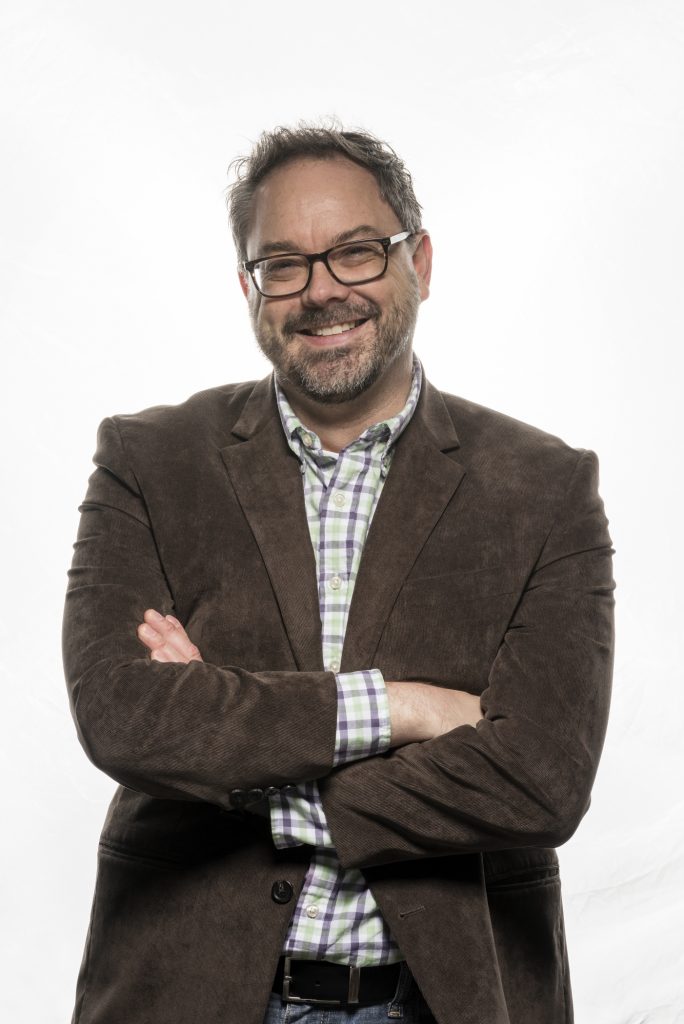
Name: William Cuthbertson
Hometown: Ogden, Utah
Role on campus: Undergraduate engagement librarian (an assistant professor)
Years on campus: 1 year in February 2018
Did you have plans to continue your education beyond a four-year degree? I have a master’s, and frankly, that’s enough.
Why did you choose Chico? I was excited that Chico State is a Hispanic-Serving Institution and by the high percentage of first-gen students coming here. If you’re looking to make a difference, which I am, then this is the student population I see as being the future of academia.
What first sparked your interest in a college education? I loved reading from early on, so it was always assumed I’d go—that, and having high-achieving friends that I didn’t want to be shown up by. It’s funny how a little friendly peer pressure could turn out to be such a factor.
What were some barriers that prevented others in your family from completing a four-year degree? Primarily the military life, which for us meant moving constantly to new states, new cities, or sometimes just another part of the same base. You learn to be agile, but it isn’t easy to commit to long-term plans.
Who can you point to as a mentor or inspiration in your pursuit of a four-year degree and why? I have two friends from high school, Sean and Noel, who were both very instrumental in getting me going in college. Noel actually drove me to college that first day, for which I’m grateful, because I had no idea how I was going to get there otherwise. My brother was influential too—and he had just as hard of a path as I had, if not a little harder for having to go down it first. The fact that we both work in academia now says a lot, I think, about determination and where a simple love of reading can get you.
What does being first-gen mean to you? It means wanting to succeed but not always getting the “how” of it. It means learning the rules of college sometimes in the worst ways. (I like to tell my students about how I failed my first science class, botany, because I had no understanding of what a lab class was.) It means learning quickly how your experiences are very different from those of your peers, but also how sometimes that’s a great asset in the classroom: you can ask the questions no one else thinks of—or dares to ask—and getting that kind of direct interaction with your instructors is liberating, educationally.
What challenges do you struggle with or have you overcome as a result of being first-gen? There were a lot of secondary issues that made growing up a lot more about survival than making any future plans. Alcoholism, and the accompanying factors, were a huge issue in my family. Everyone else I knew seemed to have time to plan for their lives beyond high school, but I felt, even knowing I could make it, that we were living in a kind reactionary mode—waiting for things to normalize before being able to look ahead. I would add that having the experiences I’ve had—full-time work during college, having to drop out for lack of funds, transferring to a school that was more personal and a lot smaller than where I started—gives me a sense of accomplishment and a real way to communicate with students who I think are doing the same thing or feeling the same way. We can cut through the fancy talk about college and talk about what we need and want to do. That kind of directness, being able to make the obscure language of academia plain—that is an asset that first generation students have that is going to not just help them, but help them aid others in making that same climb to success.
What is your wildest ambition? I want to finish one of the novels I started writing when I was younger, but other than that, I feel I am useful to students and doing exactly what I want to do.
What message do you want to send other first-gen students? Not only can you do it, you can do it well. And chances are you already know a lot of the skills that are going to get you there. Be proud of the road you’ve had and the miles you’ve put on it. It’s your road. It’s your feet getting you there, and you’re meeting fantastic people along the way. But if anyone suggests you can’t do it, come and get me and we’ll go talk to them together.
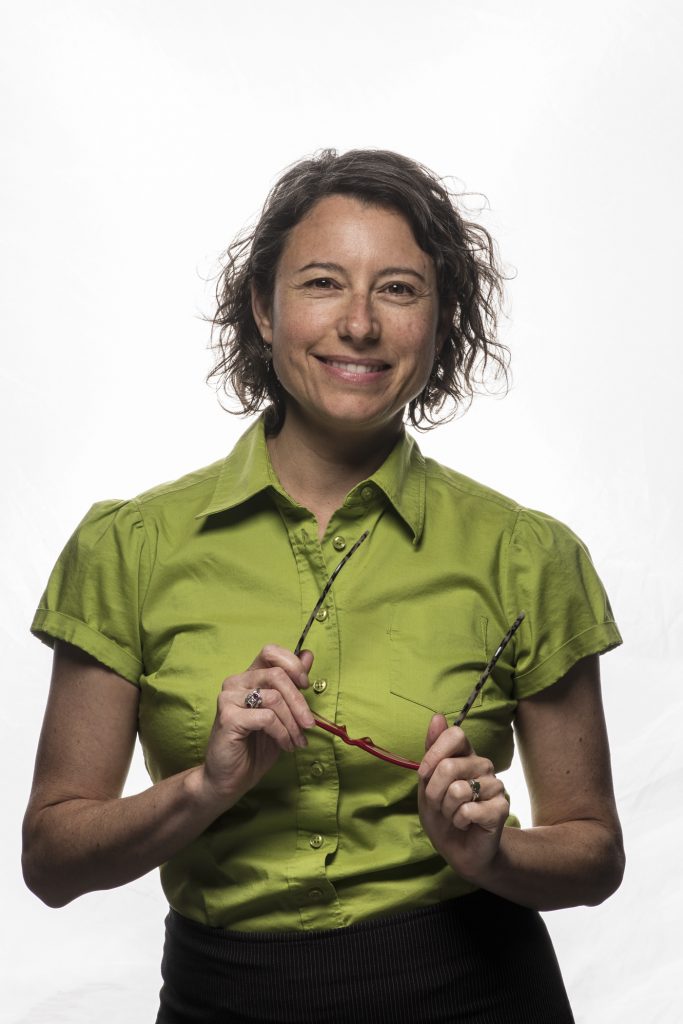
Name: Tasha Alexander
Hometown: Santa Cruz
Role on campus: Project director of TRIO Student Support Services
Years on campus: 16
Did you have plans to continue your education beyond a four-year degree? I earned an MA.
Why did you choose Chico? Chico State looked like the universities I had seen in movies!
What first sparked your interest in a college education? My parents insisted that I get a degree so that I didn’t have the same struggles and roadblocks in life that they had.
What were some barriers that prevented others in your family from completing a four-year degree? Lack of financial resources, having children early in life, and fear of failure.
Who can you point to as a mentor or inspiration in your pursuit of a four-year degree and why? My political science professor, Bob Jackson, really believed in me and encouraged me to do exceptional things like study abroad and apply to graduate school. He actually planted the seed in my head. Those dreams seemed way out of my league until he convinced me to see myself as both intelligent and competent, and as someone who belonged in college.
What does being first-gen mean to you? It means gratitude. To my parents for pushing me to get a degree so that I could choose a career path I love and have financial security; to my mentors for helping me navigate the path and be bolder than I thought possible; and to my younger self for having been brave enough to take big risks and for having had the grit to stay the course.
What challenges do you struggle with or have you overcome as a result of being first-gen? The imposter syndrome is still a factor. As the first person in my family to have a job that requires a college degree, I still can’t believe I work at a university and collaborate on a daily basis with so many sophisticated professionals and scholars!
What is your wildest ambition? To have my house paid off by the time I retire so that I can be the first in my family to enjoy a stress-free retirement.
What message do you want to send other first-gen students? I would quote Bell Hooks, who reminds us that “education is the practice of freedom.” I would also quote my dad, who used to tell me “No one can ever take your education away from you.” Please don’t take your education for granted—it is the biggest gift you can give to your future self.


